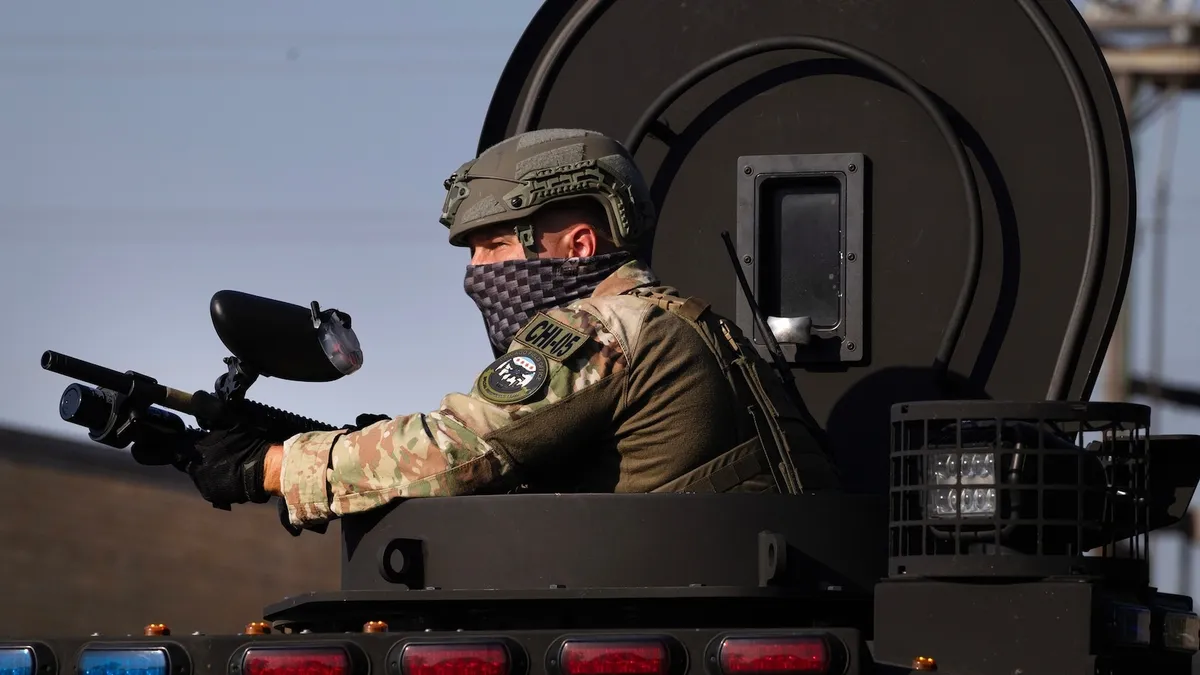
On Saturday, Illinois Governor JB Pritzker announced that despite his repeated requests for federal mobilization to Chicago being rejected, President Donald Trump plans to send in 300 members of the National Guard. This decision comes amidst rising tensions between local leaders and the federal government. Pritzker took to social media to reveal that the Trump administration issued him an ultimatum: either call up the National Guard troops or face federal intervention.
In his statement, Governor Pritzker indicated that the Trump Administration is set to federalize 300 members of the Illinois National Guard. This information was confirmed by Department of Homeland Security Secretary Kristi Noem during an interview with conservative host Benny Johnson on Friday. Noem stated, “I sent a request to Defense Secretary Pete Hegseth. They will be rolling in within the next 24 hours.” Additionally, she mentioned that a similar request was made for deployment in Portland, Oregon.
The federal request for troop deployment came following a concerning incident in Chicago. Law enforcement officers patrolling near the intersection of 39th Place and S. Kedzie Avenue shot an unidentified armed U.S. citizen early Saturday morning. The individual was reportedly already on the radar of Homeland Security, as explained by Tricia McLaughlin, the assistant secretary for public affairs at DHS. McLaughlin revealed that law enforcement was allegedly boxed in by ten vehicles, leading to a confrontation where an armed driver rammed into a police vehicle, prompting officers to return fire.
Secretary Noem announced that reinforcements are being sent to Chicago to manage the escalating situation. “I am deploying more special operations to control the scene. Reinforcements are on their way. If you see a law enforcement officer today, thank them,” she stated in her announcement. This move follows a pattern where Trump has hinted at deploying the National Guard into cities, particularly those governed by Democrats, to combat crime and enhance immigration enforcement.
Governor Pritzker has consistently voiced his opposition to Trump’s tactics, stating that the deployment of the National Guard will disrupt the lives of hardworking Americans. He remarked, “They will pull hardworking Americans out of their regular jobs and away from their families all to participate in a manufactured performance—not a serious effort to protect public safety. For Donald Trump, this has never been about safety. This is about control.”
Pritzker did not hold back in his criticism of Secretary Noem and Border Patrol Chief Greg Bovino, who were in Illinois observing ICE raids. He condemned their actions as unprecedented escalations of aggression against Illinois residents. Eyewitness accounts during an alleged ICE encounter in Chicago revealed that border patrol agents appeared to use a chemical agent against civilians, leading to significant public outrage.
Andrew Denton, a bystander who witnessed the incident, recounted how he was caught in the chaos while parking his car to get groceries. He described seeing a confrontation between a scooter rider and the ICE vehicle, which escalated when agents deployed tear gas. “My face was burning, tears rolling, and I was choking on the gas for about 10 minutes,” Denton shared, highlighting the tension in the area.
In another troubling incident, Chicago Alderman Jessie Fuentes reported being handcuffed by an ICE agent when she inquired about their warrant during an operation. The Trump administration has been vocal about its ICE efforts in Chicago, with Noem even releasing a promotional video highlighting these raids. “Chicago, we’re here for you,” she stated in her post, which was criticized by Pritzker as being more focused on social media presence than on genuine justice.
As tensions between state and federal authorities continue to rise, the implications of federal troop deployment in Chicago remain a contentious topic, reflecting broader issues surrounding law enforcement, immigration policy, and community safety.